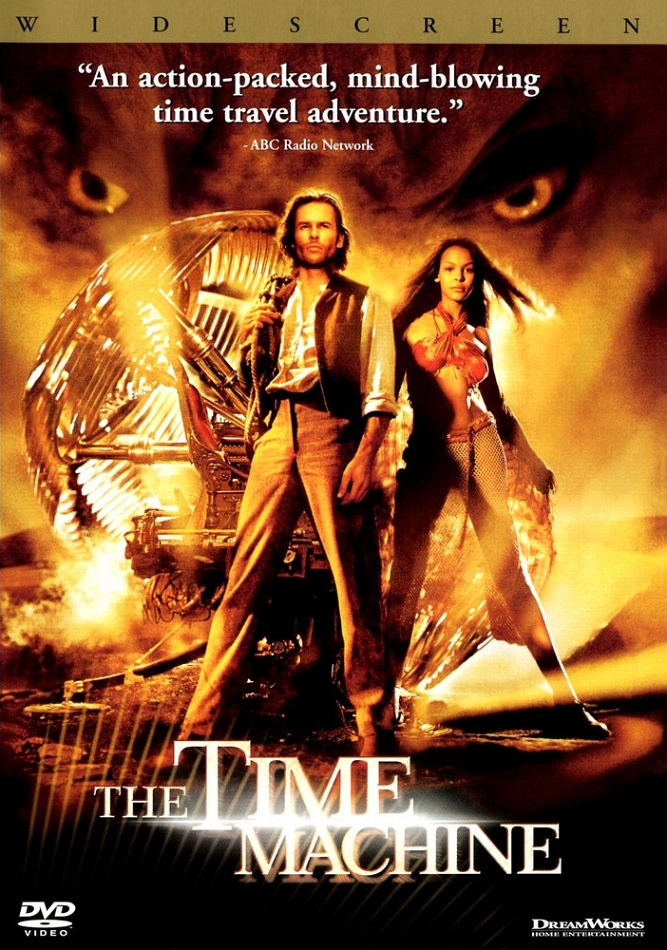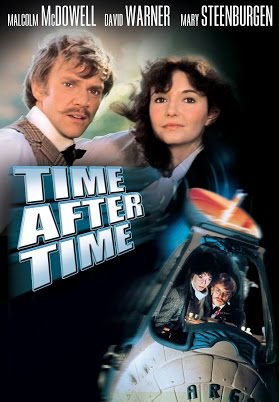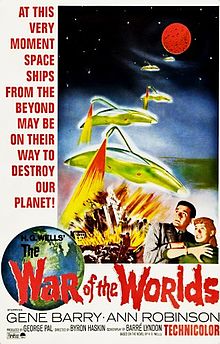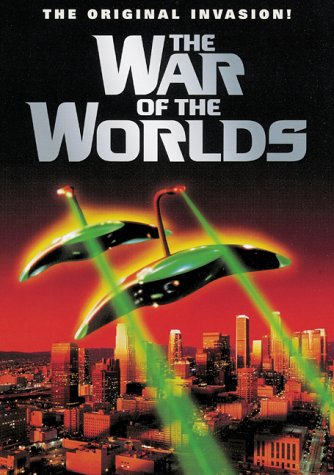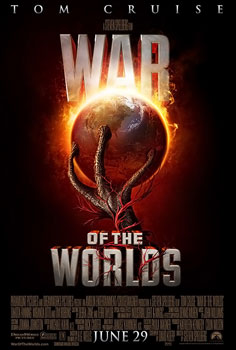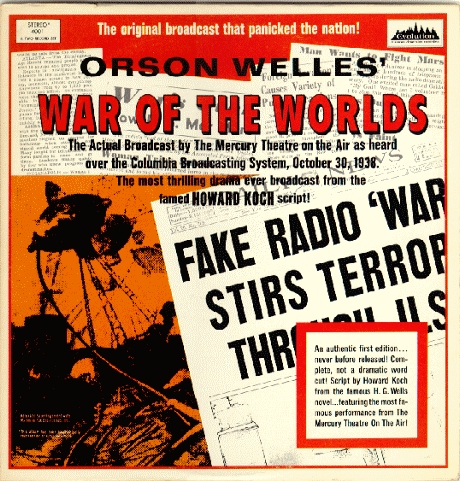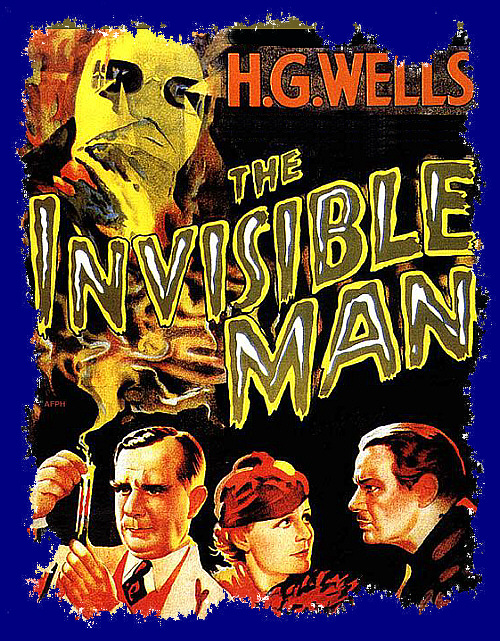|
Craig White's authors |
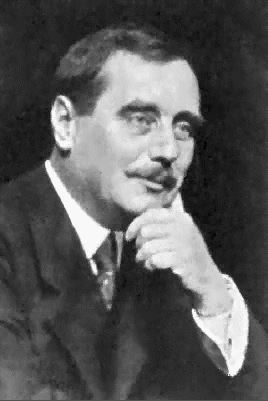 |
H.G. Wells (1866-1946) |
 |
H.Gl Wells was one of two "fathers' or "founders of modern science fiction" in late 1800s
Jules Verne (France) 1828-1905
Journey to the Center of the Earth 1864
Twenty Thousand Leagues Under the Sea 1870 (Captain Nemo and the futuristic submarine Nautilus)
Around the World in 80 Days 1873
H G Wells (England) 1866-1946
The Time Machine 1895
The Island of Dr. Moreau 1896
The Invisible Man 1897
The War of the Worlds 1898
+ many more books, fiction and nonfiction, including "literary fiction" like Mr. Kipps and Tono-Bungay.
But the 1890s was his breakthrough decade, and novels he wrote then are the ones most read or filmed since.
Many movies have been made from novels by Verne, Wells, and other early sf writers like Edgar Rice Burroughs (1875-1950), creator of Tarzan, John Carter Warlord of Mars, and other "space operas."
Movies based on science fiction classics vary considerably from the original texts. They keep the "gimmick" (time travel, undersea exploration) but update the environment and add love-interest. (e.g. Weena in the 1960 Time Machine was played by Yvette Mimieux):
|
|
|
|
|
|
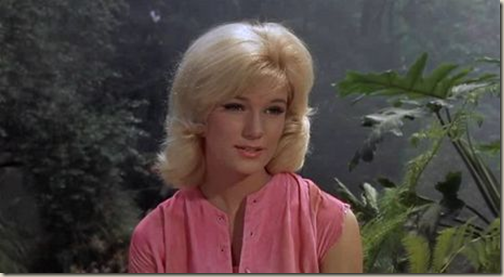 Yvette Mimieux |
 |
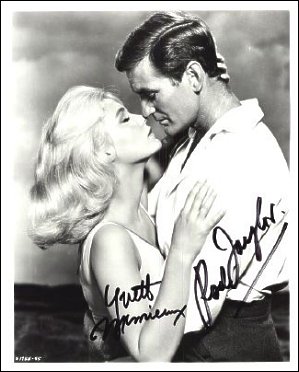 Stars of 1960 Time Machine (publicity photo?) |
How does Wells survive as "classic sf" when so little sf does?
![]() Prose is lean, quick, uncluttered.
Prose is lean, quick, uncluttered.
![]() Wells uses familiar analogies and metaphors to make the unknown familiar.
Wells uses familiar analogies and metaphors to make the unknown familiar.
![]() Parts of plot resemble action movie: fight against dehumanized villain / other;
big showdown + apocalyptic ending & transcendence of romance narrative. (cf.
alien contact)
Parts of plot resemble action movie: fight against dehumanized villain / other;
big showdown + apocalyptic ending & transcendence of romance narrative. (cf.
alien contact)
![]() Partly because of when it was written,
The Time Machine remains
G-rated, family-friendly, accessible. Also, many family-values readers are
attracted to Victorian-Edwardian era literature, when sex was repressed, white
people ruled the world without question, and everyone spoke like a wealthy
Englishman.
Partly because of when it was written,
The Time Machine remains
G-rated, family-friendly, accessible. Also, many family-values readers are
attracted to Victorian-Edwardian era literature, when sex was repressed, white
people ruled the world without question, and everyone spoke like a wealthy
Englishman.
![]() Interest in science gives rise to human adventure, discovery; assumed values are more human
than scientific. (Wells called his early novels "scientific romances"; cf.
romance narrative.)
Interest in science gives rise to human adventure, discovery; assumed values are more human
than scientific. (Wells called his early novels "scientific romances"; cf.
romance narrative.)
![]() Science and technology are subordinated to
fiction of humans or human-like creatures (until end:
then repulsion at non-human)
Science and technology are subordinated to
fiction of humans or human-like creatures (until end:
then repulsion at non-human)
![]() Scientific and technological knowledge are incidental to larger story.
Scientific references create an "atmosphere" of science.
Scientific and technological knowledge are incidental to larger story.
Scientific references create an "atmosphere" of science.
![]() Science of time travel was almost completely undeveloped, so Wells can't be
wrong. If he'd explained how the time machine works, by now his explanation
wouldn't work. As things stand, Well's time machine works as well for readers
now as it ever did.
Science of time travel was almost completely undeveloped, so Wells can't be
wrong. If he'd explained how the time machine works, by now his explanation
wouldn't work. As things stand, Well's time machine works as well for readers
now as it ever did.
![]() Science on grand scale doesn't age as quickly as small-scale specializations and
technology (e.g., evolution continues to prevail in scientific knowledge, and
Wells wrote about it so broadly that his future-projections are about as true
now as they were then)
Science on grand scale doesn't age as quickly as small-scale specializations and
technology (e.g., evolution continues to prevail in scientific knowledge, and
Wells wrote about it so broadly that his future-projections are about as true
now as they were then)
![]() Open-ended conclusion keeps readers wondering, thinking, writing their own
endings.
Open-ended conclusion keeps readers wondering, thinking, writing their own
endings.
|
|
|
|
|
|
|
Conspiracy-merchant Glenn Beck's production company, Mercury Radio Arts, |
|
![]()
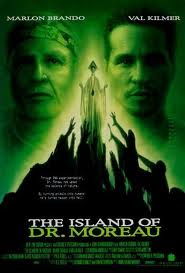 |
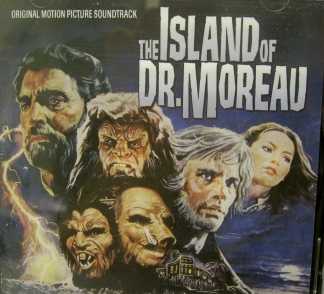 |
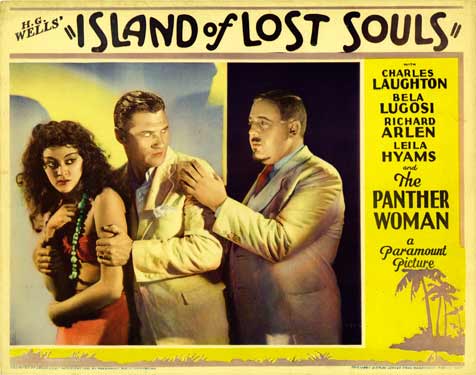 |
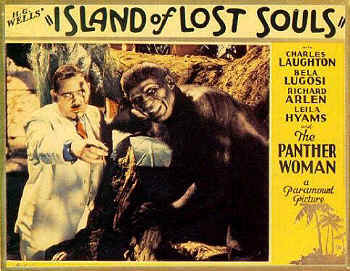 |
![]()
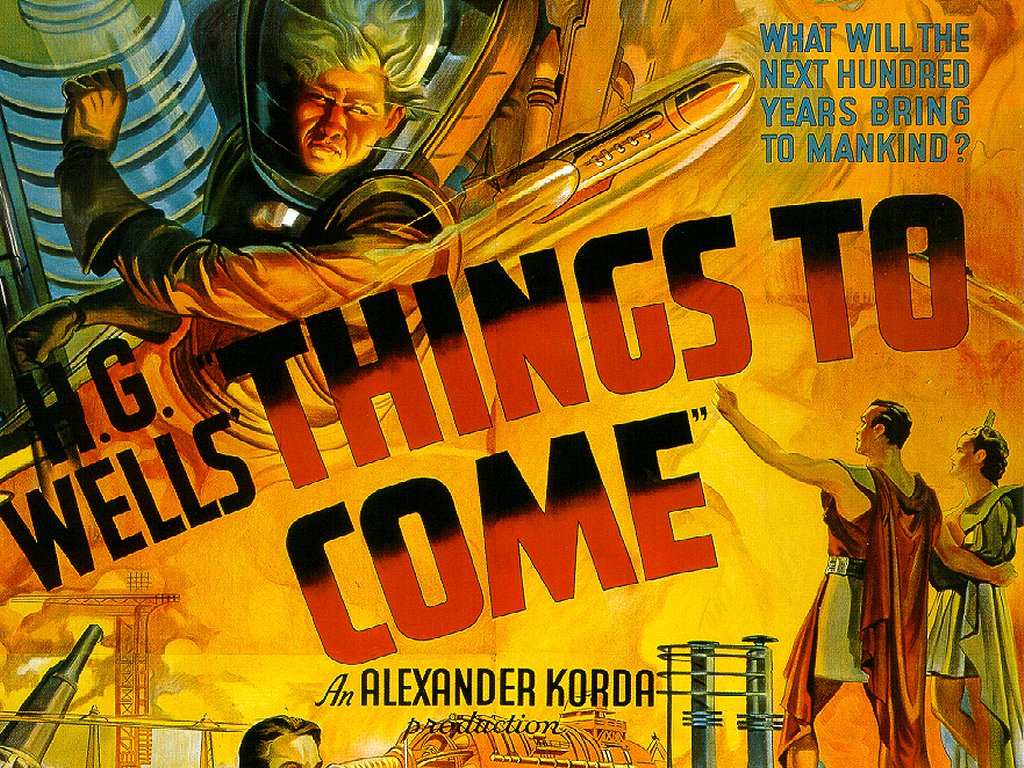
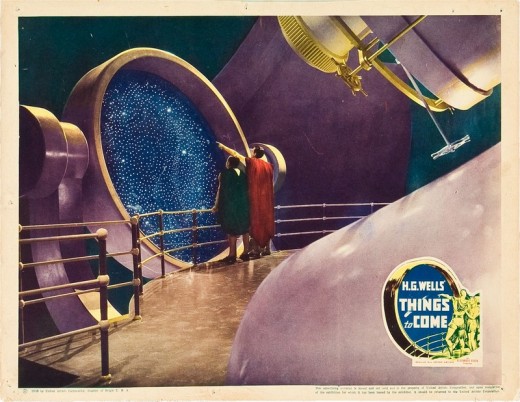
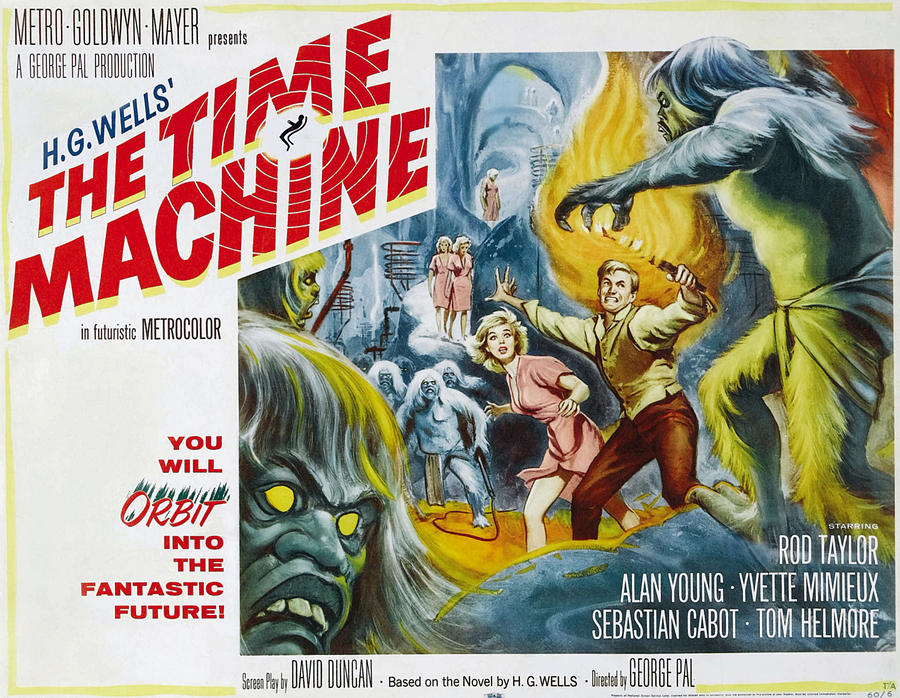
2.jpg)
